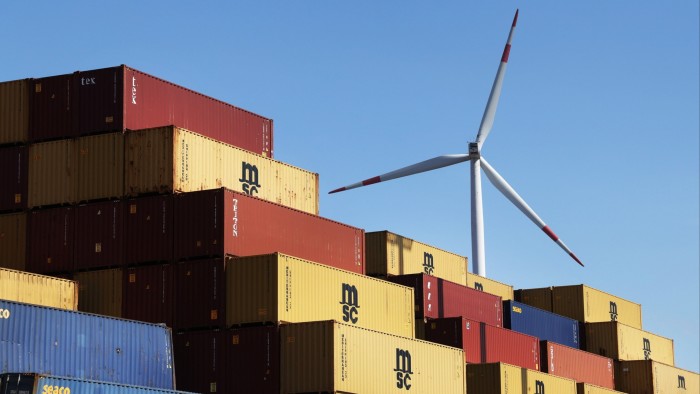Stay informed with free updates
Simply sign up to the Climate change myFT Digest — delivered directly to your inbox.
Lindsay Hooper is chief executive of the Cambridge Institute for Sustainability Leadership
Across major businesses, responses to climate change are diverging. Some are soft-pedalling their plans or quietly removing references from public view. Others are staying the course but increasingly choosing to stay quiet about it. A smaller group — often those already invested in renewables or energy efficiency — are vocally pushing for faster, system-wide change.
In some boardrooms, however, the instinct is to hunker down, say less, and wait it out, amid political pressure, regulatory fatigue and economic uncertainty.
But this isn’t just a PR dilemma, it’s a test of strategy. The prize is not applause or appeased stakeholders, but long-term competitiveness and resilience.
Disruption is no longer a distant prospect, it is under way. Whether through the escalating impact of global warming or the unstoppable momentum of the clean energy transition, change is inevitable.
More stories in this report
The economic logic for accelerating climate action is being made daily through financial consequences across sectors, from insurance and utilities to food and property.
In a volatile global economy, the most reliable lifeline is not a defence of the status quo, but investing in business models and technologies with a long-term future — those aligned with a low-carbon economy.
Yet the gap between, on the one hand, current levels of progress and the actions that today’s markets will support and, on the other, real-world realities, is dangerously overstretched. Warnings from insurer Allianz about a climate-driven credit crunch, and escalating concern in the food sector are just the beginning. The challenge is not whether change will happen, but whether it can happen fast enough to avoid dire climate and financial impacts.
Every industrial transition is messy and contested, with winners and losers. We are deep into the hard grind of moving from fossil fuels to clean energy, beyond headline pledges into the territory of trade-offs and structural shifts. Delay won’t protect companies from disruption, it will deepen their exposure.
The financial risks for businesses are twofold: systemic instability if the transition fails to scale and competitive displacement if it accelerates faster than businesses can respond. For companies, action needs to focus on ensuring their business model can survive systemic risks and the next phase of industrial evolution.
In this context, many leading businesses are already working to build resilience to physical risks and price shocks, and to benefit commercially from efficiency savings and investing in new growth sectors. These actions are critical to protect individual companies, but they are not sufficient. No business can fully insulate itself from systemic shocks in markets still wired to reward unsustainable behaviour.
Real security — and real opportunity — lies in accelerating transition at scale. That means shaping entire sectors and markets, not just improving corporate performance. Some companies are doing just that: working to influence policy, trigger demand for low-carbon materials and co-ordinate investment in shared infrastructure.
Leadership also means confronting resistance. Lobbying by incumbents, such as fossil fuel companies, is delaying progress — as are political attacks designed to stoke fear and division. These tactics are a deliberate strategy by vested interests fighting for survival. Their success will come at the expense of almost every sector.
Yet too many companies that recognise the need for more ambitious climate action have gone quiet — afraid to speak, hoping the storm will pass. Silence hands victory to those profiting from delay. It weakens public mandates, traps business in outdated rules and stalls momentum to create enabling markets.
Europe, in particular, has much to gain from transition — and much to lose from delay. The region already holds many of the technologies and innovations needed to lead the industries of the future. The real challenge is scaling. If the continent dithers while others invest strategically, we will fall behind and see our businesses displaced, our energy and resource security weakened and our grid resilience compromised.
The task now is to accelerate industrial transformation, and to build effective public-private collaboration to deliver and implement credible transition plans. In many sectors, the economic case is clear. What is missing are the conditions that make that action commercially viable in the short term.
Business leadership is needed to show what is possible, highlight where barriers can be removed, to contribute to discussions about where finite public finances can catalyse private sector action, and where new skills must be built.
This is not a time to wait and see how the politics play out, but a time to roll up sleeves and focus on practical progress, delivered in the right sequence, with realism and resolve.
Retreating from climate action is not a strategy for success or even survival. It is a surrender. And in the global race to dominate tomorrow’s markets, that is a loss no business can afford.
Climate Capital

Where climate change meets business, markets and politics. Explore the FT’s coverage here.
Are you curious about the FT’s environmental sustainability commitments? Find out more about our science-based targets here
